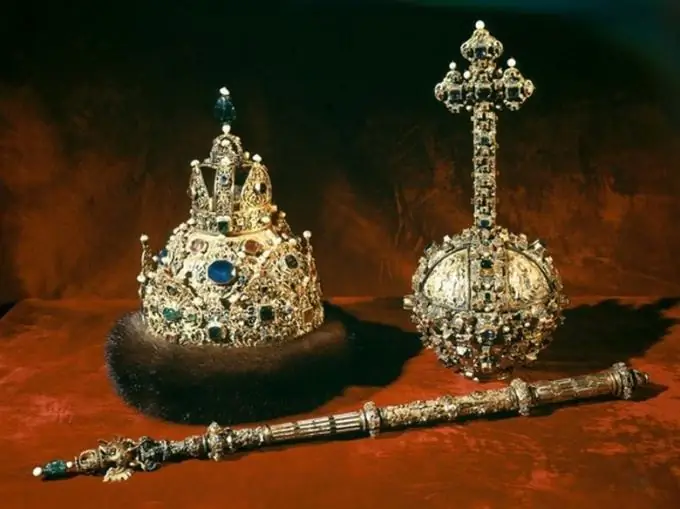- Author Nora Macey macey@family-relation.com.
- Public 2023-12-16 10:17.
- Last modified 2025-01-23 08:47.
A monarchy is a form of government in which the supreme power in the state belongs to one person, called the monarch, and is also inherited. Both the king and the emperor, king, sultan, duke, khan, etc. can act as a monarch.

Instructions
Step 1
There are four main features that indicate a monarchy:
- power in the state belongs to one ruler for life;
- power in the state is inherited;
- the monarch is the personification of the unity of the nation and represents the country at the international level;
- the monarch is independent and enjoys legal immunity.
In fact, not all states that are considered monarchical satisfy the above criteria. Moreover, it is often not easy to draw a line between republic and monarchy.
Step 2
Monarchies are subdivided according to the scope of restrictions:
- absolute monarchy (all power is in the hands of the monarch, and the authorities are completely subordinate to him);
- constitutional monarchy (the power of the monarch is limited by the current constitution, or traditions or unwritten rights).
Step 3
In turn, the constitutional monarchy is further subdivided into two types:
- parliamentary (the functions of the monarch are reduced to representative, but he does not have real power);
- dualistic (the power of the monarch is limited by the parliament and the current constitution in the field of legislation, within their boundaries he has the freedom to make decisions).
Step 4
According to the traditional structure, monarchies are divided into the following types:
- Ancient Eastern (the most ancient form of government, had its own unique features);
- feudal (also called medieval);
- theocratic (power belongs to the church head or religious leader).
Step 5
Moreover, in accordance with the stages of its development, the feudal monarchy is divided into:
- early feudal;
- patrimonial;
- estate-representative;
- absolute.
Step 6
Among the advantages of the monarchy are: preparation of the future monarch to power from birth; the possibility of holding events that are useful in the long term; the responsibility of the monarch for the state; recognition of the successor, which minimizes the risk of shocks, etc. The disadvantages include: lack of legal responsibility of the monarch; choosing a new ruler by chance birth, and not by voting for the most worthy, etc.

